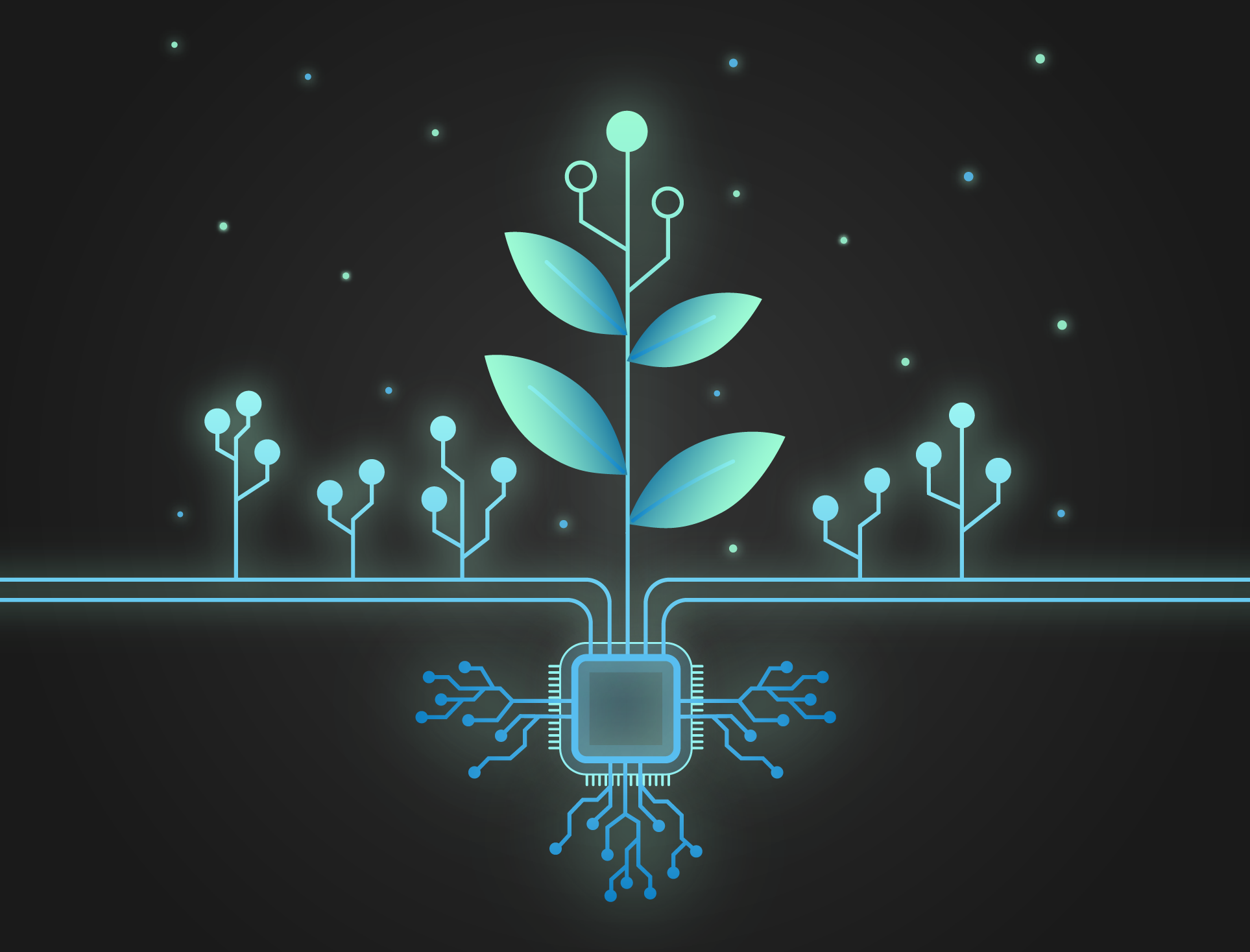10 Ways AI is Powering a Sustainable Future

Climate change and resource depletion are pressing challenges facing humanity. Fortunately, innovation is offering solutions, and Artificial Intelligence (AI) is emerging as a powerful tool in the fight for a more sustainable future. Here are 10 ways AI is helping us build a greener and more sustainable world:
AI can analyze energy consumption patterns in buildings, factories, and power grids. This allows for intelligent control systems that adjust energy use based on real-time needs, minimizing waste and promoting renewable energy integration.
AI-powered systems can analyze soil conditions, weather patterns, and crop health data. This empowers farmers to optimize irrigation, fertilizer application, and pest control, leading to increased yields while minimizing water usage and environmental impact.
AI can optimize manufacturing processes to reduce waste and energy consumption. This includes optimizing cutting patterns to minimize material waste, predicting equipment failures for preventive maintenance, and identifying areas for energy efficiency improvements.
AI can analyze complex supply chains to identify inefficiencies and bottlenecks. This allows for optimized logistics, reduced transportation emissions, and improved tracking of materials to ensure ethical sourcing and minimize waste.
AI can help predict and manage the flow of renewable energy sources like wind and solar power. This is crucial for integrating them effectively into the grid and ensuring a reliable power supply even when weather conditions are variable.
AI can analyze vast amounts of environmental data from satellites, drones, and sensor networks. This allows for improved monitoring of wildlife populations, deforestation detection, and early identification of environmental threats.
AI can be used to develop intelligent sorting systems for waste management. By identifying and separating recyclable materials more efficiently, we can reduce landfill waste and promote a circular economy where resources are reused.
AI can analyze vast datasets of climate data to improve our understanding of climate change and predict future scenarios. This knowledge can inform policy decisions and mitigation strategies to address climate change effectively.
AI can be used to model and optimize urban planning for sustainability. This includes designing energy-efficient buildings, optimizing traffic flow to reduce congestion, and creating green spaces within cities to improve air quality and livability.
AI can be used to develop personalized recommendations that encourage sustainable choices in individuals and businesses. These recommendations can range from suggesting energy-efficient appliances to promoting sustainable transportation options.
The potential of AI for sustainability is vast and ever-evolving. As AI technology continues to develop, we can expect even more innovative applications that will help us create a more sustainable future for generations to come.
